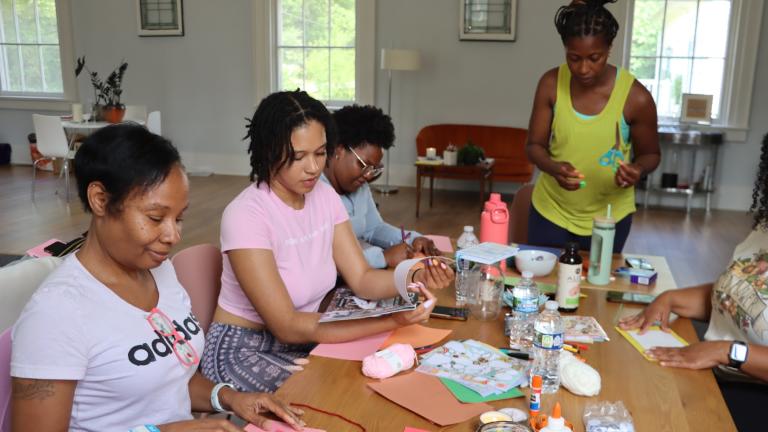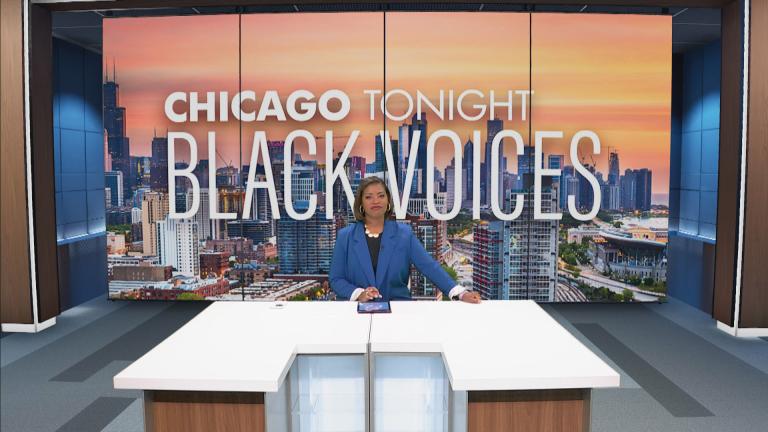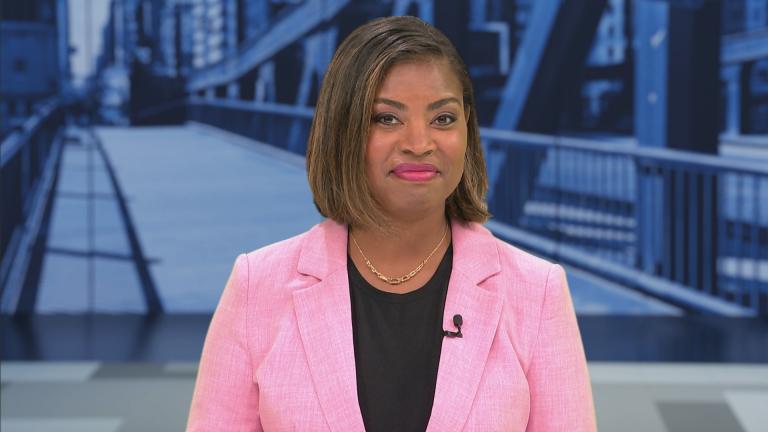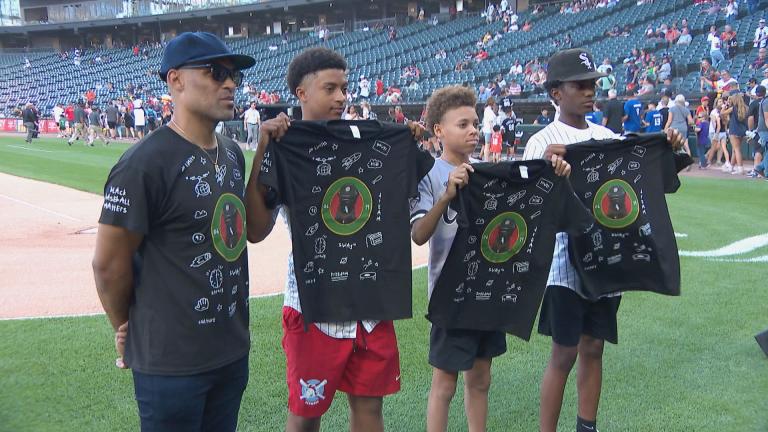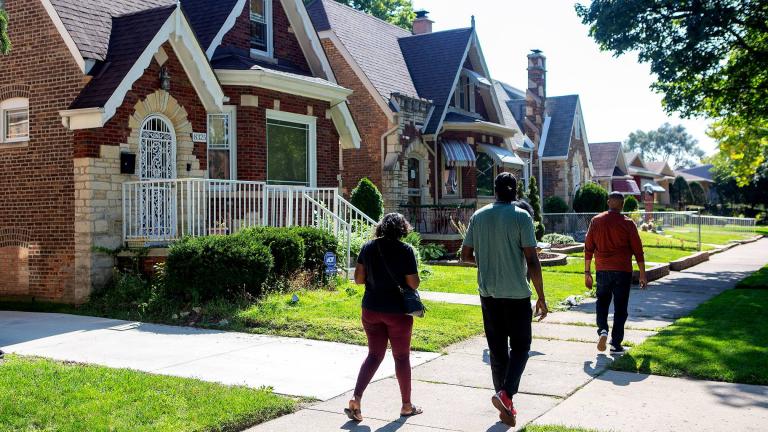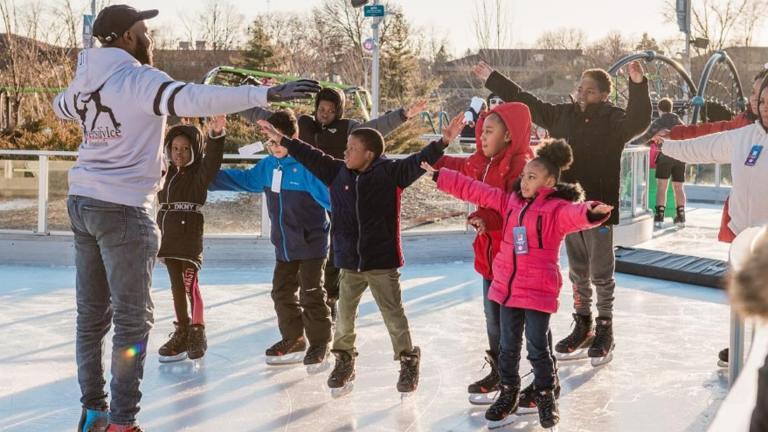Last summer, the 5,000 Chicagoans selected to participate in the city’s guaranteed income pilot program began receiving $500 per month to spend however they needed. The Resilient Communities program was designed to help income-qualified Chicagoans stabilize their financial circumstances, particularly those who found their finances strained by the pandemic.
Deonte Baker was among those selected for the pilot. He’s been a singer his whole life, so as a young adult, he decided to give a professional music career a shot. By spring 2022, Baker said, he was on a roll.
“Time is tricky in music, and you have to sometimes go after opportunities when they present themselves,” Baker said. “I had, like, a job interview and then the next day I had a job interview, the next day I had a gig. I was on a roll. I had a plan.”
But that progress came to a sudden halt when he was violently attacked outside of his apartment in Austin.
“I was stabbed with a 10-inch carving knife and bled out,” Baker said. “I bled out and lost, like, a third of my blood. I had to have three blood transfusions. I had to learn how to walk again. Me being a singer, I had to give up everything because I physically could not do it. And just as far as how you feel about yourself, because if you can’t work for yourself, then, you’re like, ‘Well, what’s my life? What am I doing?’”
Baker was still recovering from the attack when he heard about the city’s Resilient Communities guaranteed basic income pilot and decided to apply. He said he was “overjoyed” to learn he was selected.
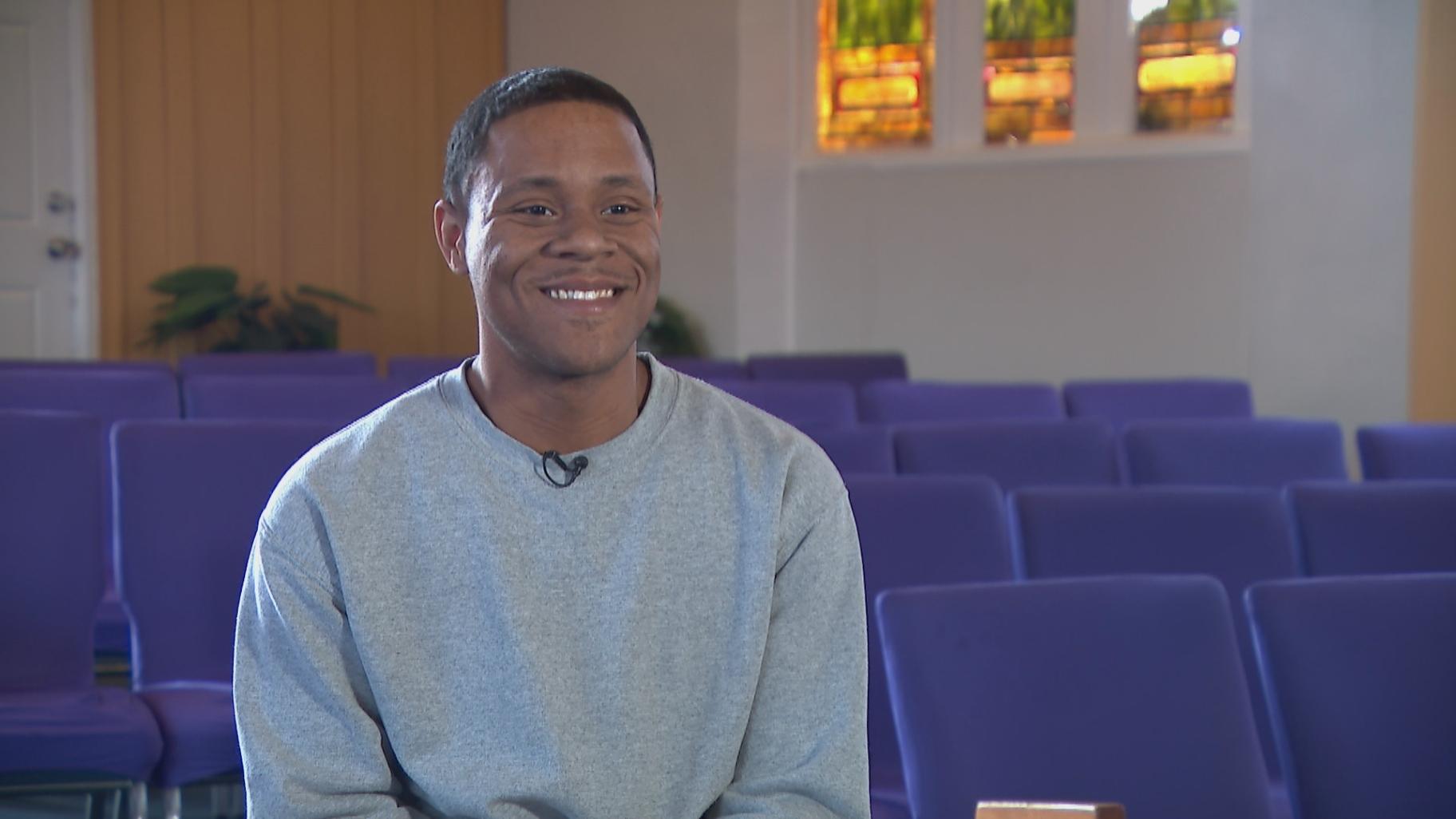 Deonte Baker was recovering from a violent attack when he was selected for the Resilient Communities program. “I was able to rebuild my life and feel good about it,” he said. (WTTW News)
Deonte Baker was recovering from a violent attack when he was selected for the Resilient Communities program. “I was able to rebuild my life and feel good about it,” he said. (WTTW News)
“It literally got me out of the gutter financially,” Baker said. “I was able to get a car for myself. I was able to pay rent. I was able to rebuild my life and feel good about it.”
Augustina Townsend had rebuilding on her mind, too, when she moved to Chicago from Nigeria in 2002. A few years later, she was working as a cashier and learned she was pregnant. She recalled bringing her newborn son, Miles, home.
“I put him on the bed, and I looked at him. I said, ‘Boy, your ma is just a cashier at Target, but we’re gonna take one day at a time,’” Townsend said. “And now one day has brought us to 16 years and we’re still counting.”
For those 16 years, Townsend has raised her son alone — and while she said it’s been a financial struggle, making sure Miles has what he needs is her constant focus.
“Miles plays basketball. Miles has a dream. Miles is a leader,” she said of her son.
Townsend works as a rideshare driver, and she said the pandemic shutdowns made her already fragile financial situation worse.
“I was piling up on my credit card bills because that was basically the only means of survival,” Townsend said. “By the time you incorporate gas, time, me being a single mother, I barely make nothing.”
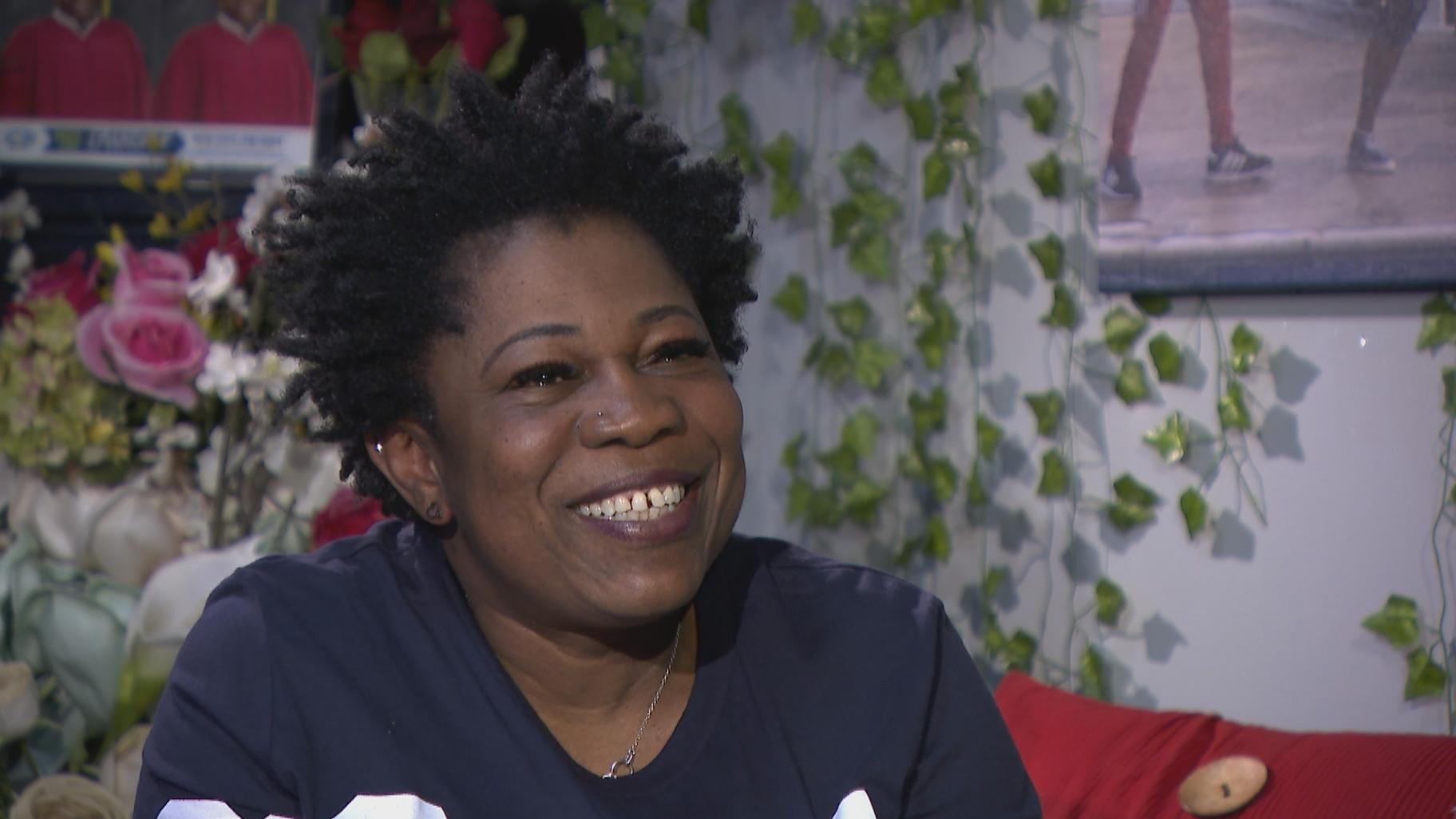 Augustina Townsend works as a rideshare driver. She said the monthly $500 she’s received through Resilient Communities helped keep her on the road by covering car expenses. (WTTW News)
Augustina Townsend works as a rideshare driver. She said the monthly $500 she’s received through Resilient Communities helped keep her on the road by covering car expenses. (WTTW News)
Townsend said the monthly $500 she’s received through Resilient Communities has helped keep her on the road by covering car expenses. With some careful budgeting, she was even able to travel with Miles to a school basketball tournament downstate.
Both Baker and Townsend said as they approach the end of the pilot period, they have renewed hope for their financial futures.
“I have hope. Huge hope, as big, bigger than me. We have dreams, big dreams,” Townsend said.
“It gave me honestly the confidence to go after my dreams and invest in my dreams,” Baker said. “I’m making those short-term goals, which is going to connect me to the long-term goals, which is ultimately going to help me get the life that I want for myself, that I envision for myself.”

